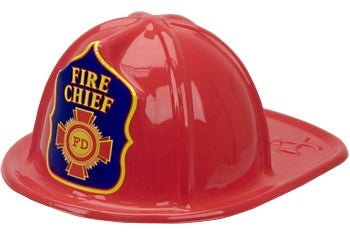Sometimes the U.S. Supreme Court issues a decision that clearly sets a new precedent.
Other times, the highest court in the land isn’t quite so obvious.
The latter is definitely the case with the Supreme Court’s recent decision on race, affirmative action and promotion practices in Ricci v. DeStefano.
The case, also referred to as the New Haven (Conn.) Firefighters case, gained notoriety not just because it centered around race in the workplace, but also because it had been before the U.S. Court of Appeals of the Second Circuit when that body included Supreme Court nominee Sonia Maria Sotomayor.
But despite its play in the national media, the decision, which was 5-to-4 with the more conservative justices in the majority, is about “as clear as mud,” according to Richard Van Nostrand, a partner at the Worcester law firm of Mirick O’Connell.
Equal Treatment
The facts of the case are these: The City of New Haven’s fire department decided to throw out the results of a promotional exam because it was deemed racist under a rule known as “disparate impact” because only a handful of minorities qualified for promotion based on the test scores. The disparate impact provision of the Civil Rights Act prohibits employers from using tests that even inadvertently put a protected group (like minorities) at a disadvantage. After the city determined that the test was unfair and threw out the results, a group of white firefighters that passed the test sued, claiming reverse discrimination. After winding its way through appeals, the Supreme Court issued a decision in June that found in favor of the white firefighters, saying the city had acted wrongly when it threw out the test results.
But, some argue, the City of New Haven would have been sued by the minority firefighters if it hadn’t thrown out the test.
The result of the decision is that employers — public and private — are “damned if they do, and damned if they don’t,” Van Nostrand said.
In particular, Van Nostrand pointed to the court’s holding that an employer, in this case the City of New Haven, has to show evidence that they will get sued and be found liable in order to throw out the results of a promotional exam. Making that “very esoteric legal determination” puts employers in a very difficult position, he said.
Employers may now opt to simply go without tests, choosing instead to use more subjective, rather than objective, measures to determine promotions and hiring, according to Van Nostrand.
But even that course isn’t foolproof.
“Whenever you are making a decision on who gets hired, or promoted, it is always subject to challenge,” he said.
The dissenting opinion in the Supreme Court’s decision was written by Justice Ruth Bader Ginsberg. She clearly sympathized with the Catch-22 employers may now find themselves in.
“As a result of today’s decision, an employer who discards a dubious selection process can anticipate costly disparate-treatment litigation…” the dissent states. Later in the decision, she writes that using promotional tests — particularly for firefighters — “is a questionable practice, to say the least.”
Gary Chaison, a professor of labor relations at the Clark University Graduate School of Management in Worcester, said the decision still leaves the door open to “a lot of areas of controversy.” However, he does think the decision “signals to a lot of employers that they just have to be more careful in designing tests.”
A For Effort
Promotional exams are much more common in the public sector than in the private sector, according to Chaison. That’s partly because of the public scrutiny, but also because race has long been a hot-button issue in fire and police departments.
Promotional exams are used by the Worcester Fire Department, which was keeping a careful eye on the Ricci case, according to Paul Rogacz, deputy chief for the department.
“Obviously we’re aware of the situation,” he said. “We watched with interest, but not with alarm.”
Overall, Rogacz said his department was supportive of the Supreme Court’s decision.
“There was no reason to throw out the test results in the first place,” he said.
And the Worcester Fire Department — which has 384 members, 110 of which are lieutenant grade or higher — won’t be dropping promotional exams in light of the decision, he added. But Worcester, like many communities in Massachusetts, relies on a state agency — the Human Resources Division — to develop and administer promotional exams.
The HRD issued a statement to the WBJ saying that the Ricci decision will have little impact on how it currently develops tests. The division uses outside “test experts to develop its examinations” and is insulated from future lawsuits because it can show that its exams are valid “though job analysis and scientifically supported testing methods,” according to the statement.
The HRD also said in its statement that it is in the process of amending its rules to allow “score banding,” a practice of lumping scores within a range together. For example, if five people take a promotional test and two score 90 or above, if the practice of score banding is used, those two individuals might be considered for the promotion, rather than just the top-scorer. If score banding had been used in the New Haven case, more minorities would have been eligible for promotions.
Score banding or not, there are many who argue that the City of New Haven did all that it could to be fair, including Van Nostrand.
“Certainly if you look at details of what City of New Haven tried to do, you have to give them an A-plus for effort,” he said.

